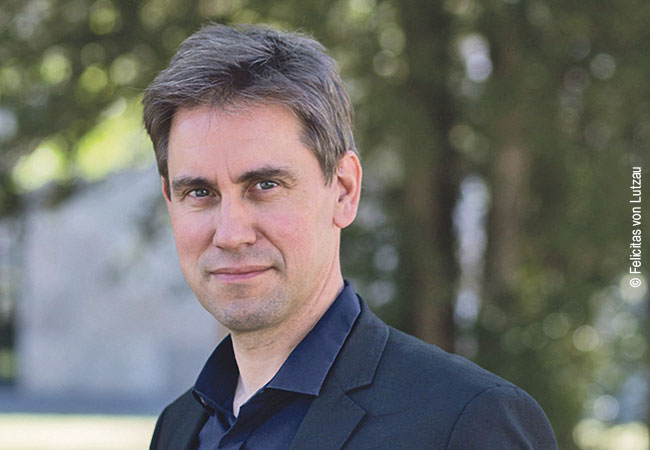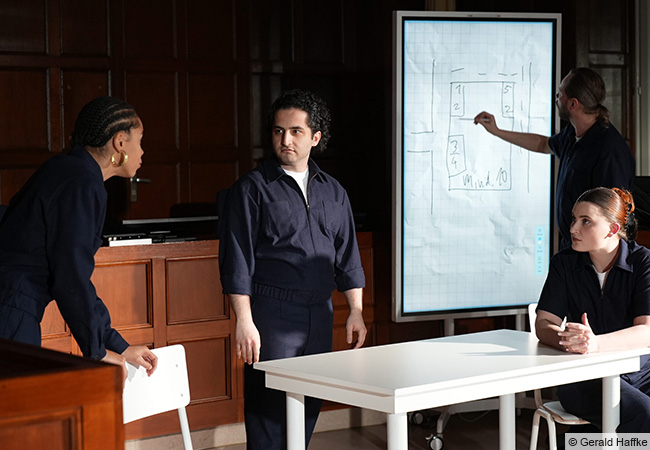
How did post-war non-fiction films – newsreels and documentaries – represent wartime deconstruction and reconstruction efforts? How did these films trigger public debate and influence the formation of European post-war societies? These issues are the focus of a research project in film studies at Goethe University in cooperation with colleagues in Italy, France and the Czech Republic, due to launch next week. The project is being funded at approximately € 1 million within the framework of the European HERA programme.
Public spaces were the focus of the HERA programme’s 6th funding call. HERA stands for Humanities in the European Research Area. The programme, which is funded within the framework of the EU research funding programme Horizon 2020, focuses particularly on the humanities. Submitted applications were required to deal with the culture and integration of public spaces in Europe.
“Visual Culture of Trauma, Obliteration and Reconstruction in Post-WW II Europe“ is the title of the project with which Professor Vinzenz Hediger from Goethe University and his colleagues from France, Italy and the Czech Republic were successful. With the plan to investigate war destruction and reconstruction in non-fiction film from 1949 to 1953, they were able to assert themselves along with 21 other projects out of a total of 300 applicants, and to exhaust almost the entire funding amount of a maximum of one million euros. The German subproject, which is also responsible for the coordination, will receive approximately half of this sum. The funds come mostly from the German Federal Ministry of Education and Research.
Frankfurt is an ideal central location for this research in film studies: the city on the Main was heavily damaged, and debates have taken place here over reconstruction vs. starting new like in hardly any other city in Europe – to this day. The project, however, will concentrate on the years following the war: there is a lot of material to be examined. To gain access to this material the four principal investigators – in addition to Hediger, Professor Francesco Pitassio in Udine (Italy), Dr. Lucie Cesalkova in Prague and Professor Sylvie Lindeperg in Paris – have recruited the assistance of the national film archives. With their expertise and equipment, the material can be digitised and made available to a wider scientific community, says Hediger.
The project focuses on public spaces such as the Römer in Frankfurt, marketplaces and other politically relevant places. Both formal and substantive aspects will be examined: how many aerial photographs are there? Can repeating elements be determined? Are there symbols that repeatedly surface in the debate? What effect did filmic reporting and documentation have on the debate? What are the differences and commonalities among the various European countries? “Our hypothesis is that these films not only presented, but also made a massive contribution,” says Hediger. Public spaces play a central role in democracy, as does their presentation in the media. In addition to the three principal investigators, one or two postdocs each will be involved in the project. The kick-off meeting to begin the three-year research project took place on 9th and 10th May in Frankfurt. The research team successfully developed workflows and refined research tools, which includes the creation of a sophisticated research database and the outlines of the main deliverable of the project, the Virtual Exhibition, a multi-lingual, film based educational experience which will be attached to the European Film Gateway







